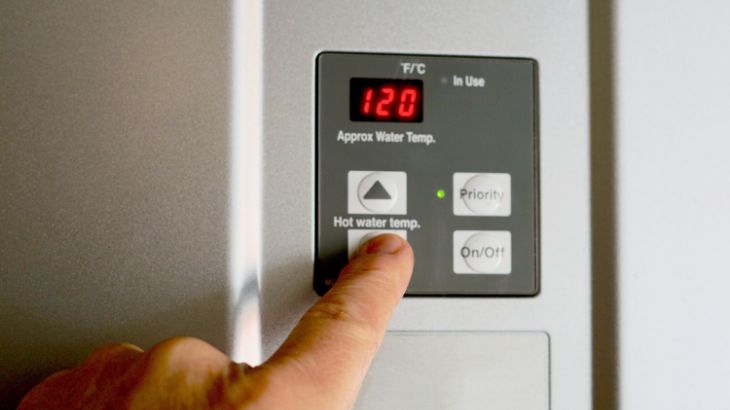
“How do heat pump water heaters work and are they more efficient than conventional units?”
Heat pumps are most often thought of as heating and cooling systems, but they can also be used to heat water —either as a stand-alone water heating system, or as a combination water heating and space conditioning system. Heat pump water heaters typically have a higher initial purchase price than conventional units, but their lower operating costs can provide a reasonable return on your investment.
How They Work
Source: www.energy.gov
Heat pump water heaters use electricity to move heat from one place to another instead of generating heat directly. Therefore, they can be two to three times more energy efficient than conventional water heaters. To move the heat, heat pumps work like a refrigerator in reverse.
While a refrigerator pulls heat from inside a box and dumps it into the surrounding room, a stand-alone air-source heat pump water heater pulls heat from the surrounding air and dumps it—at a higher temperature— into a tank to heat water. You can purchase a stand-alone heat pump water heating system as an integrated unit with a built-in water storage tank and back-up resistance heating elements.
You can also install an air-source heat pump system that combines heating, cooling, and water heating. These combination systems pull their heat indoors from the outdoor air in the winter and from the indoor air in the summer. Because they remove heat from the air, any type of air-source heat pump system works more efficiently in a warm climate.
Energy Efficiency and Operating Costs
The energy factor (EF) indicates a water heater’s overall energy efficiency based on the amount of hot water produced per unit of fuel consumed over a typical day. This includes the following:
- Recovery efficiency – how efficiently the heat from the energy source is transferred to the
- Standby losses – the percentage of heat loss per hour from the stored water compared to the heat content of the water (water heaters with storage tanks).
- Cycling losses – the loss of heat as the water circulates through a water heater tank, and/or inlet and outlet
The higher the energy factor, the more efficient the water heater. Heat pump water heaters have a much higher energy factor than conventional units; a typical heat pump unit has an EF of 2.0, compared to 0.65 for a high-efficiency gas storage system. However, higher energy factor values does not always mean lower annual operating costs. When considering a heat pump water heater, consider your water heating needs, the size of the unit, as well as energy prices.
If you choose to install a heat pump water heater, make sure your unit is ENERGY STAR qualified for energy-efficient performance.
